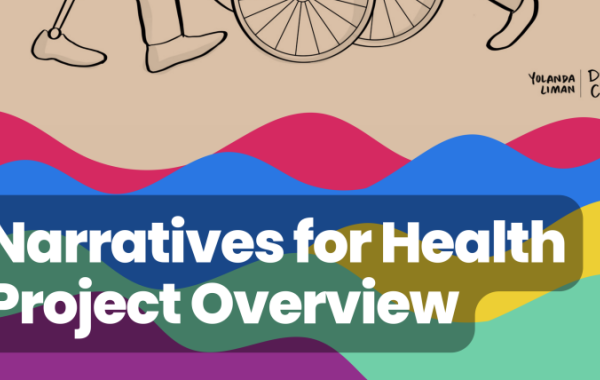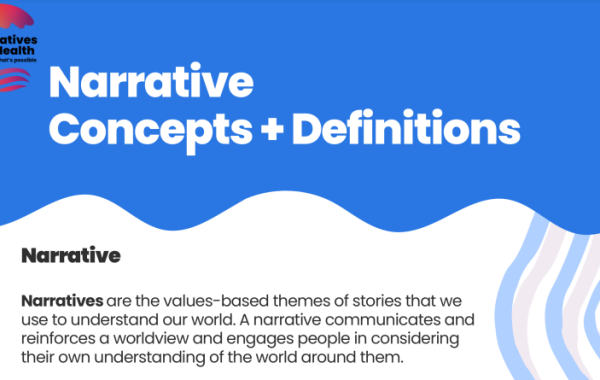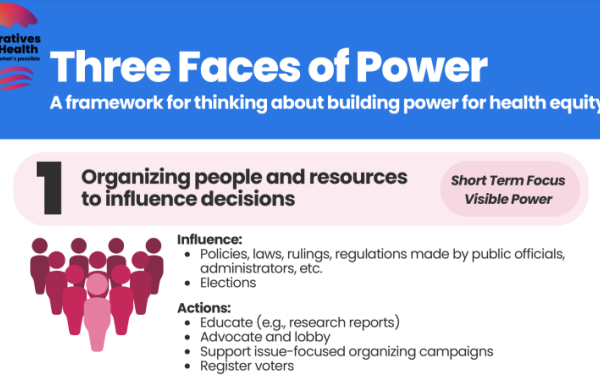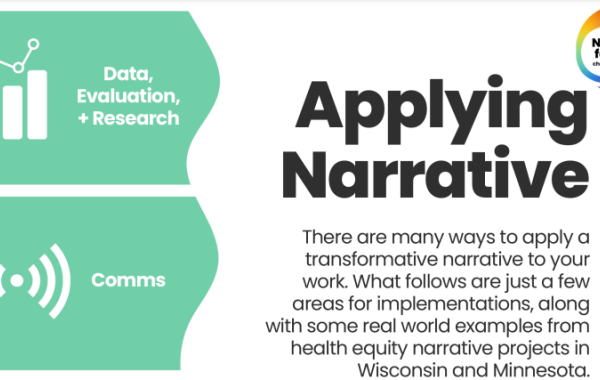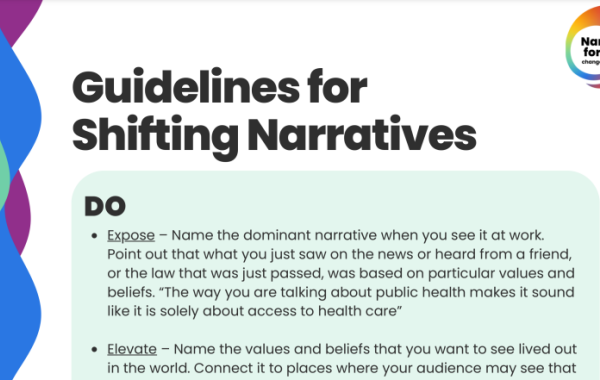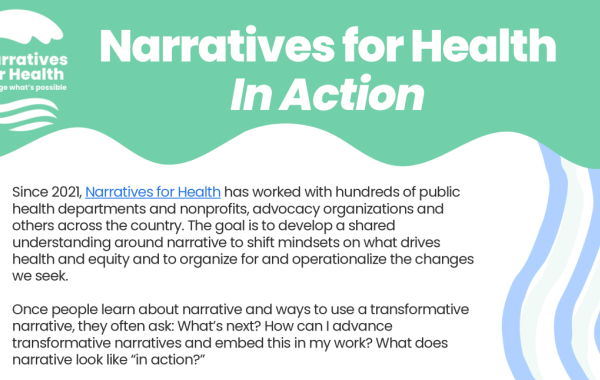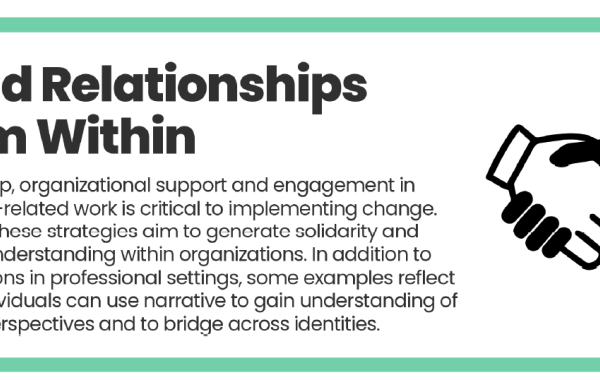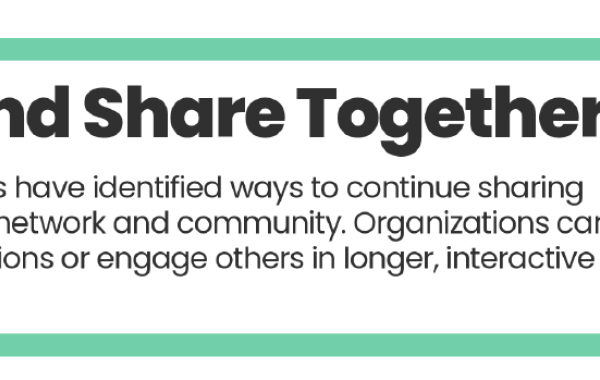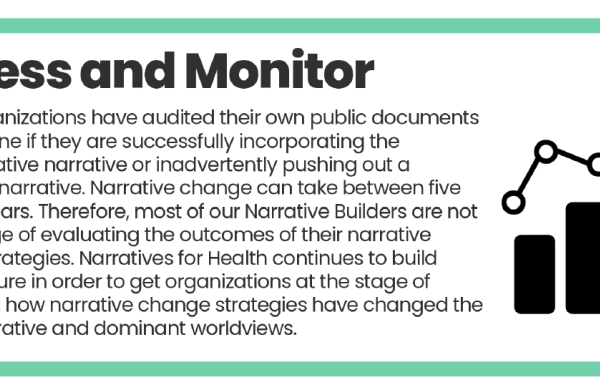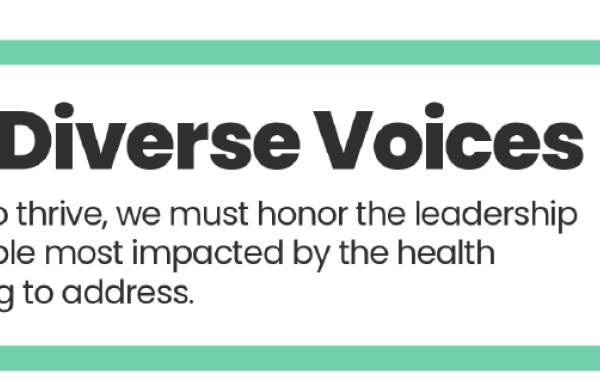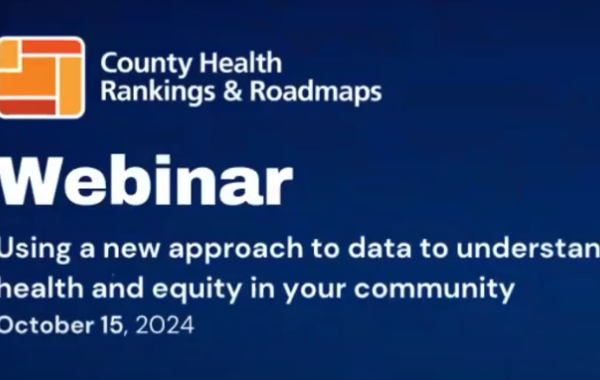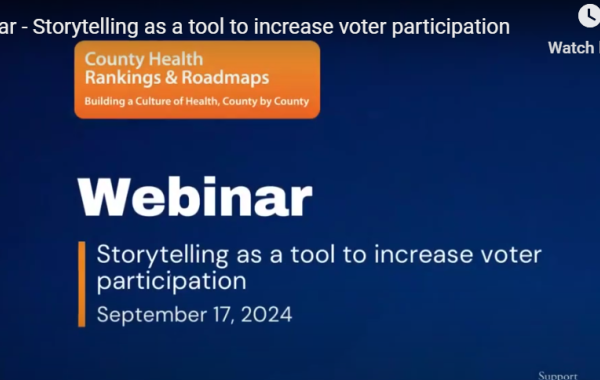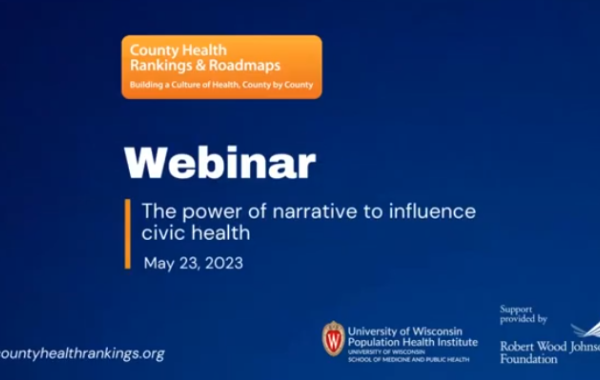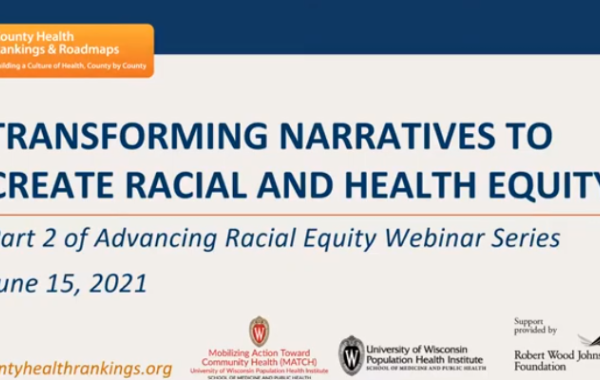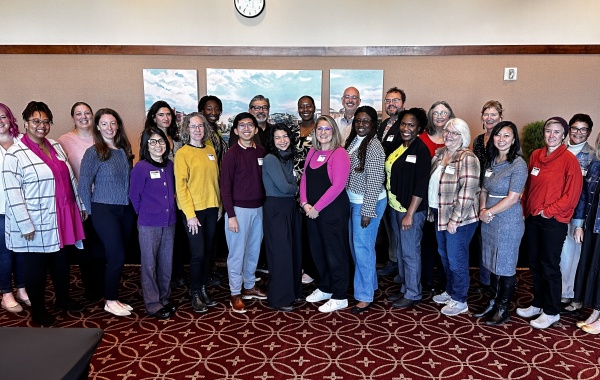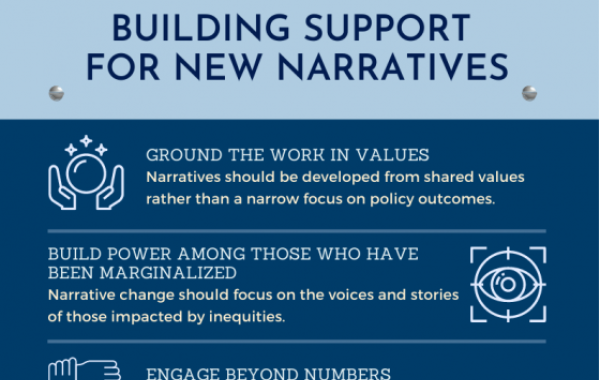Narratives for Health
Change what's possible.
Building Narrative Power
Worldviews and the narratives that reinforce them can stand in the way of advancing health and equity. We can — and must — shift mindsets to create a world in which everyone thrives.
The ability to influence worldviews by shifting narratives is a form of power. Privileged and powerful groups interested in maintaining inequities as the status quo developed and promoted a set of narratives that harm many communities by influencing worldviews and limiting change. For all communities to thrive, we must build our own narrative power to transform what we think is possible and make necessary structural changes. By doing this, we assure that health equity and racial justice become a reality.
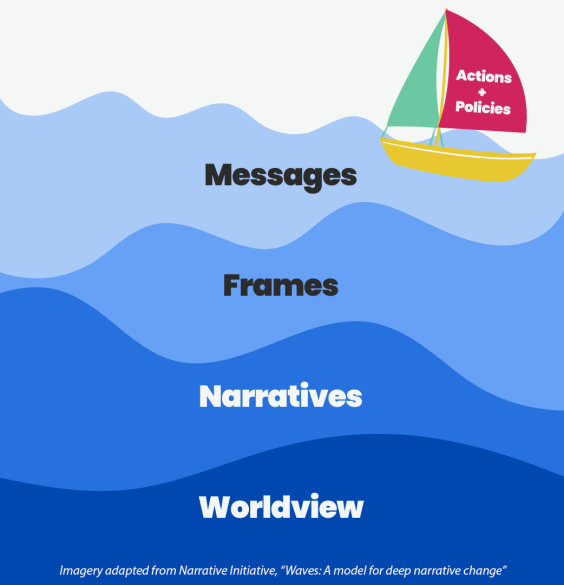
Health equity is “assurance of the conditions for optimal health for all people. Achieving health equity requires valuing all individuals and populations equally, recognizing and rectifying historical injustice, and providing resources according to need.” - Dr. Camara Jones
Dominant narratives, or narratives currently held by many people, live in our heads and actions. They exist even when we are unaware of them. An example of a dominant narrative is that one is solely responsible for one’s own success or failure, based on the value of individualism or "pull yourself up by your own bootstraps."
Transformative narratives align a set of values with health and equity goals to help reimagine what is possible. Public health and health care can use power by applying transformative narratives that move us toward the changes we need. And, we can do this together by building a health equity narrative infrastructure. Examples of transformative narratives include: Healing is interconnected and the definition of health is broad. We take care of each other. Everyone should have what they need to thrive, and diversity is our greatest strength.
Health Equity Narrative Infrastructure is a group of people and organizations that have begun to 1) align in their understanding of narrative as a strategy for health and equity, 2) build relationships and 3) pool and manage resources to advance health and equity narratives in a multifaceted, integrated and coordinated approach.
Learn more and join us in building narrative power:
How can we shift narratives?
Shifting from dominant to transformative narratives can change people’s understanding of what is possible to advance structural change for health and equity, including racial justice. Dominant narratives can be replaced to reflect the possibility of a world in which everyone has opportunities to thrive. Public health and health care must move toward shared transformative narratives. Together, the public health and health care fields can advance narratives that reflect a set of values to shape a more equitable vision. To do so requires an understanding of the way power works and how to build and wield it.
We can shift narratives by:
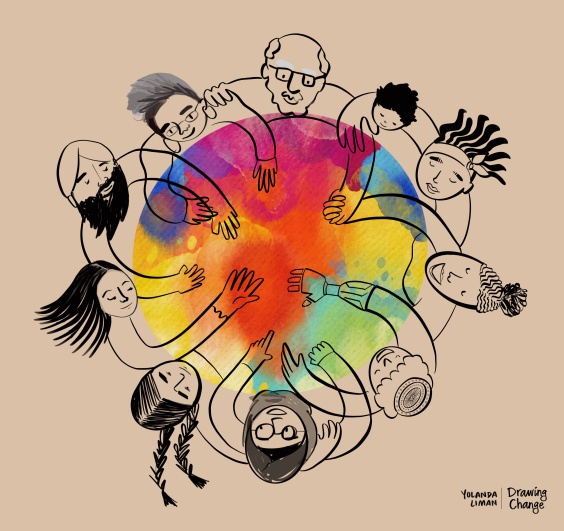
Exposing dominant narratives: Dominant narratives are embedded in institutions, structures and norms. People create, advance, and maintain them to shape possibilities, decisions, policies, and culture. These dominant narratives are drawn from the values and beliefs held by those in power and are used to accept or reject information and ideas that influence decisions.
Uncovering and elevating transformative narratives: We can promote narratives that shape a different vision of the future.
Find resources to develop your own transformative narrative.
Contrasting dominant and transformative narratives and offering a choice between them: Shifting narratives is not about winning an argument. It is about engaging people to explore their values, beliefs and assumptions and to identify how they shape what happens in the world.
Narratives for Health

County Health Rankings & Roadmaps and Human Impact Partners co-lead Narratives for Health (formerly Health Equity Narrative Infrastructure Project), a project based on the belief that we need to contend for power to shift narratives. Alongside many partners and supporters from across the country, the project elevates a transformative narrative for health and equity. The project seeks to build a collective of organizations seeking to shift their work away from the dominant narratives that have impeded progress and toward new, more inclusive ideas and worldviews that support health and racial justice.
The project offers:
- Narrative discussions and facilitator trainings. The project provides learning opportunities, from orientation-level materials and discussions to facilitated narrative cohorts and train-the-facilitator series. This includes practice-related materials around narrative, power and the narrative process. These discussions and trainings help identify ways to apply narrative to your work, within your organization and within your network.
- Post-cohort action and support. After engaging in narrative discussions, join other narrative builders with access to our monthly Community of Practice as well as support and funding opportunities. Identify ways to apply transformative narratives to your work and ways to collectively shift dominant narratives.
- Evaluation and research. We are developing case examples and lessons learned on ways to apply transformative narratives in public health and what it means to build a health equity narrative infrastructure.
Learn more about joining a train-the-facilitator series or cohort to collaborate with others seeking to change narratives in their communities. Gain access to the Health Equity Transformative Narrative and receive support to aid your efforts.
Already participated in one of our cohorts? Get in touch with our team for additional support as you take action and begin to apply narrative tools in your work.
Get in touch with a Narratives for Health team member to learn about shifting narratives in your community.
Explore Resources
Explore resources from the Narratives for Health project to support your narrative change efforts.
Webinars & Blogs
Narratives for Health Partners
We appreciate the contributions from the following organizations:
| American Medical Association Berkeley Media Studies Group Community Partnerships for Health Equity County Health Rankings & Roadmaps Dave Mann (Grassroots Power Project) FrameWorks Healthy Democracy, Healthy People Healthy Places by Design Human Impact Partners Minnesota Department of Health | Narrative Initiative National Association of County and City Health Officials National Organization of State Offices of Rural Health NeighborWorks Othering & Belonging Institute Population Health Improvement Partners Public Health Awakened Praxis Project Wisconsin Department of Health Services |


